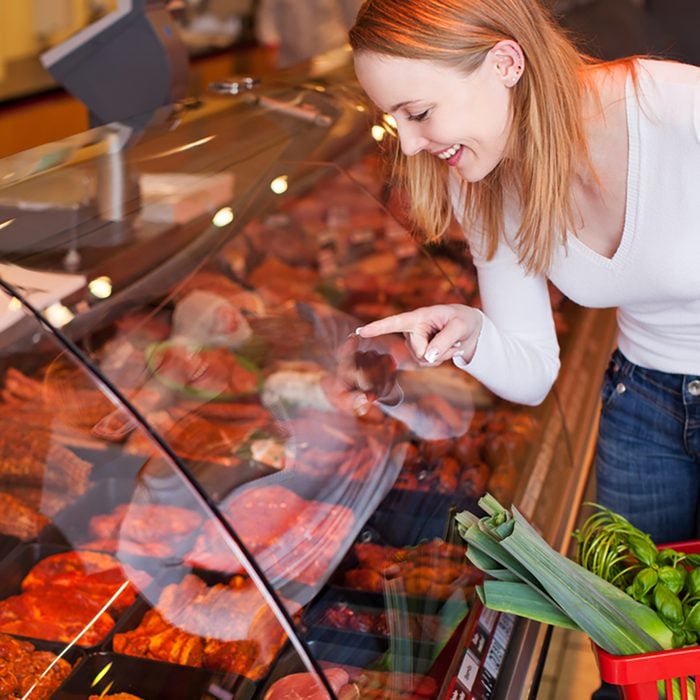
Choosing the Wrong Bacon
With so many different bacon brands at the grocery store, and even more at your local butcher or farmers market, it can be difficult to tell which option is best. To help you out, pick up a pack of our Test Kitchen’s favorite bacon brands.

Buying Too Much
If you’re making bacon for one or two people—why not pick up a half-dozen rashers at the butcher counter instead of the big packs? It will not only be fresher than the pre-packaged strips, but it won’t ever go to waste in your fridge. Learn how to cook bacon on the grill.
If you do find yourself with extras, try these leftover bacon recipes.
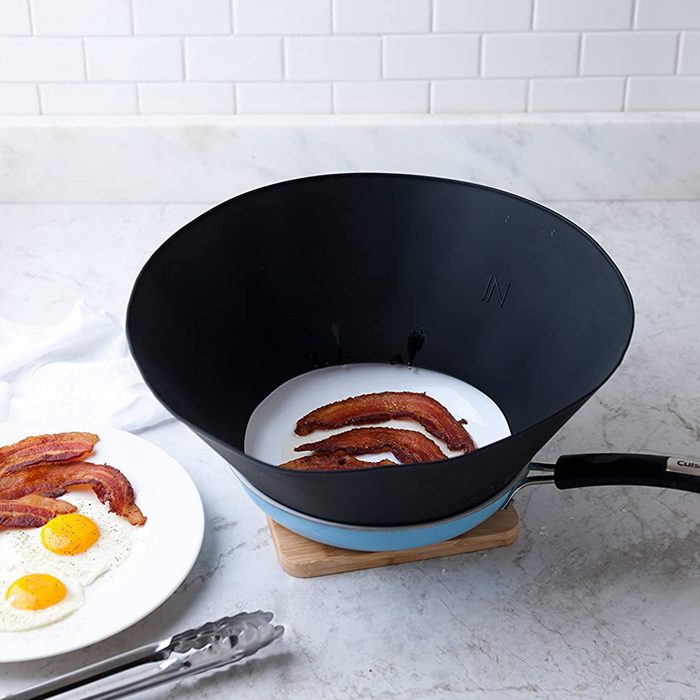
Frying without Taking Precautions
No doubt about it: Bacon is worth all the work it takes to cook it. But it is work and cooking bacon, particularly on the stovetop, requires a few precautions.
First, be sure to turn on your range hood to help vent any smoke and keep bacon smells under control. Also be sure to protect yourself from grease spatters with gadgets like a mesh screen or the Fry Wall, one of our favorite Shark Tank products.
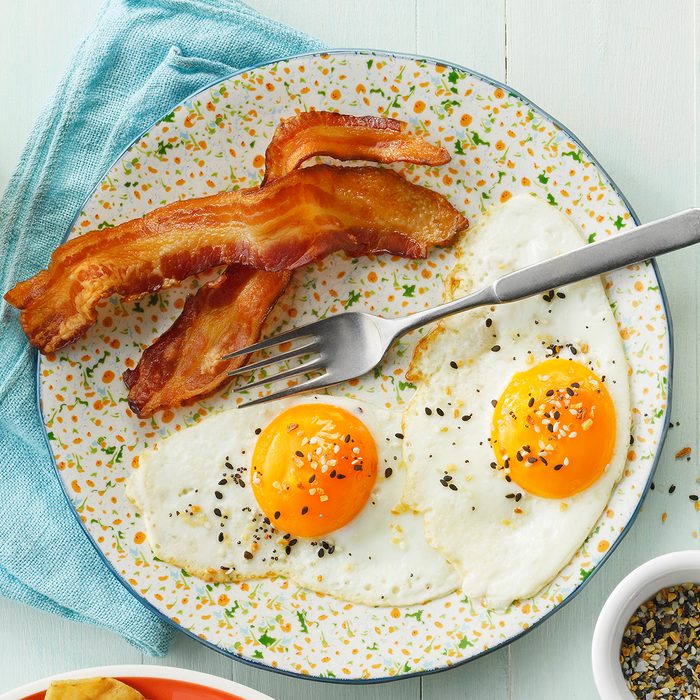
Cooking Bacon Every Day
If bacon is a part of your morning routine, don’t break out the skillet every morning. Instead, include bacon in your meal prep. Make bacon in advance and pop pre-cooked slices in the microwave for 10-15 seconds to crisp each morning.
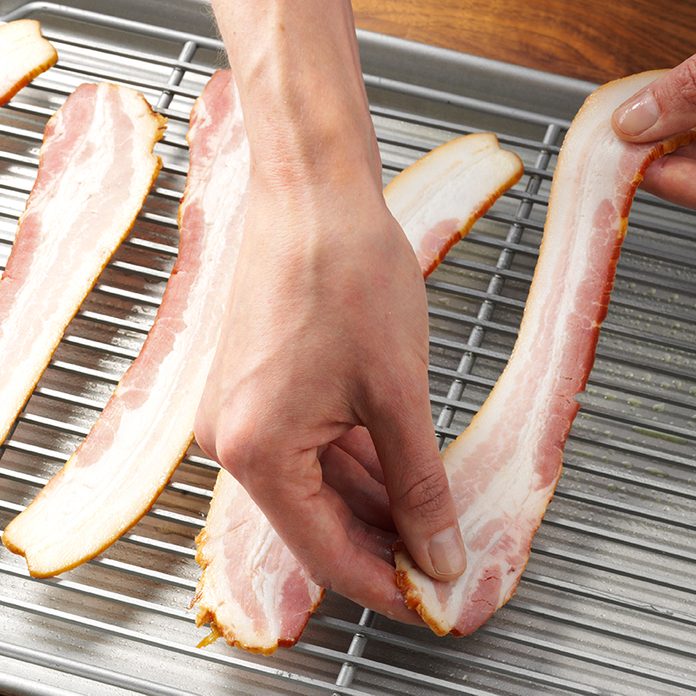
Frying on the Stovetop Every Time
Yes, your cast-iron skillet is perfect for frying up a few strips of bacon. However, this isn’t the only way to make bacon. If you’re cooking up a big batch (or just want to steer clear of grease spatters), try baking bacon instead. This method is super simple and is a convenient way to cook up lots of bacon without having to work in batches.

Cooking Cold Bacon
In order for the meat and fat in your bacon to cook evenly, they have to be at the same temperature. The fat retains the cold longer than the meat, so letting it sit at room temp for 15 minutes before you start cooking will help produce a more evenly cooked piece of bacon.
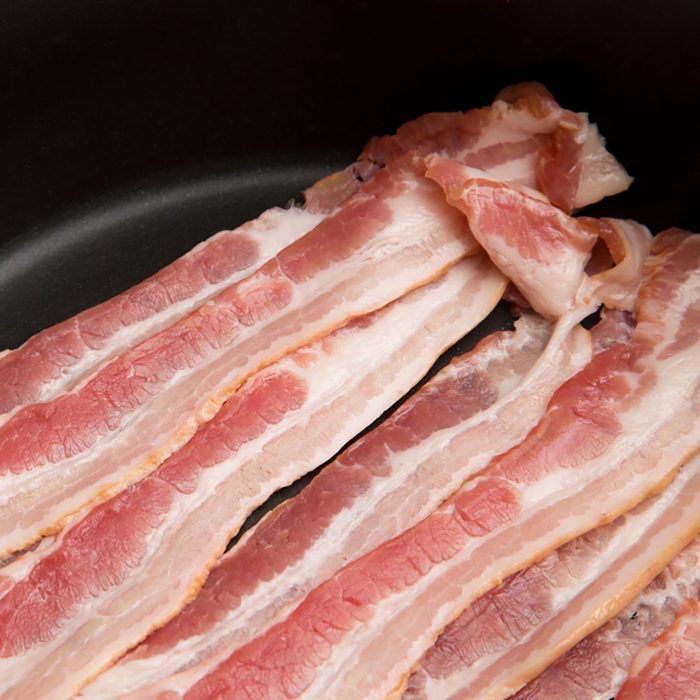
Crowding the Pan
The bacon needs room to breathe. When you crowd the bacon, it will leave you with a mess of tangled strips of floppy bacon instead of the perfectly crisp strips you know and deserve. So spread that bacon out!
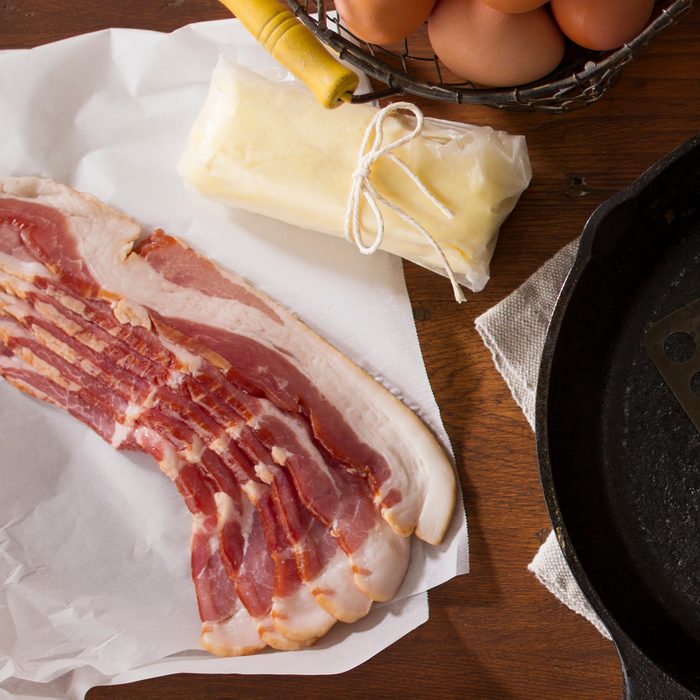
Cooking in a Too Hot Pan
While it might seem like the right thing to do, cooking your bacon at too high a temperature from the start can lead to over-cooked bacon with the fat not adequately rendered, leaving you with a slightly under-cooked and slightly burnt strip. Nobody wants that, so start it low and slow, and bring up the heat as needed.
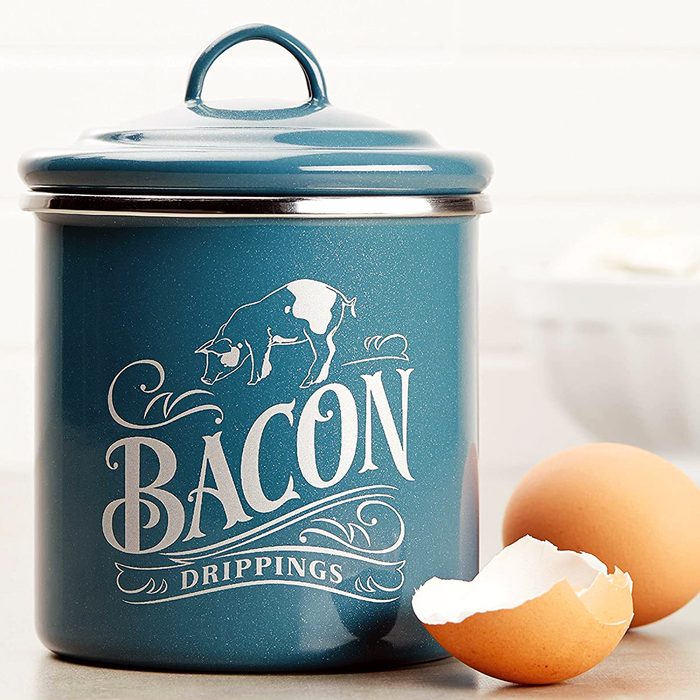
Throwing Out the Grease
Nope, don’t toss that bacon grease! This byproduct of frying bacon is actually a delicious ingredient you should keep on hand. Extra bacon grease has nearly unlimited uses when saved properly (like in this five-star bacon drippings canister our editors love).
You can use bacon grease for frying up breakfast potatoes, baking cookies, sauteeing greens and much more. Don’t let this ingredient go to waste!
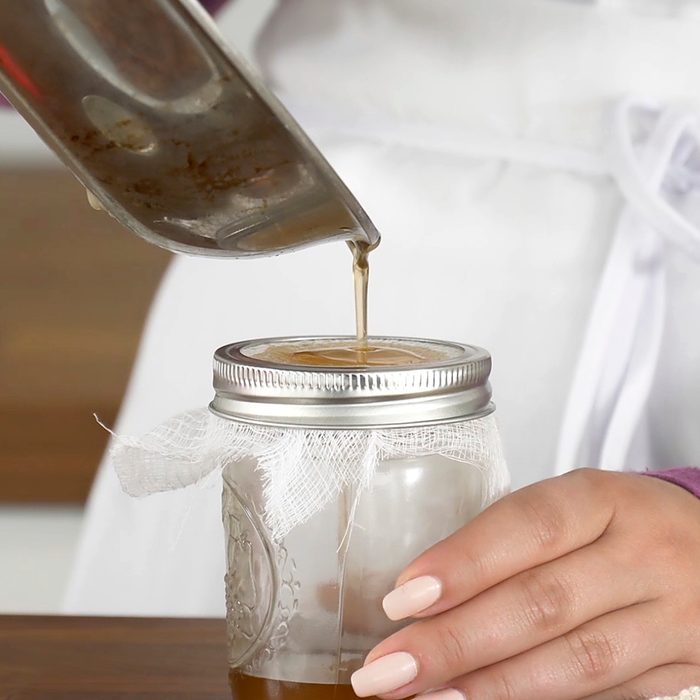
Putting Grease Down the Drain
If you aren’t planning on using the bacon grease for any other purpose, you must dispose of it properly. That means pouring the grease into a disposable container (like an old cottage cheese tub or coffee can). Once it solidifies, you can safely toss it in the trash. Alternatively, you can use this Grease Hero Drain Catcher to collect all of that bacon grease.
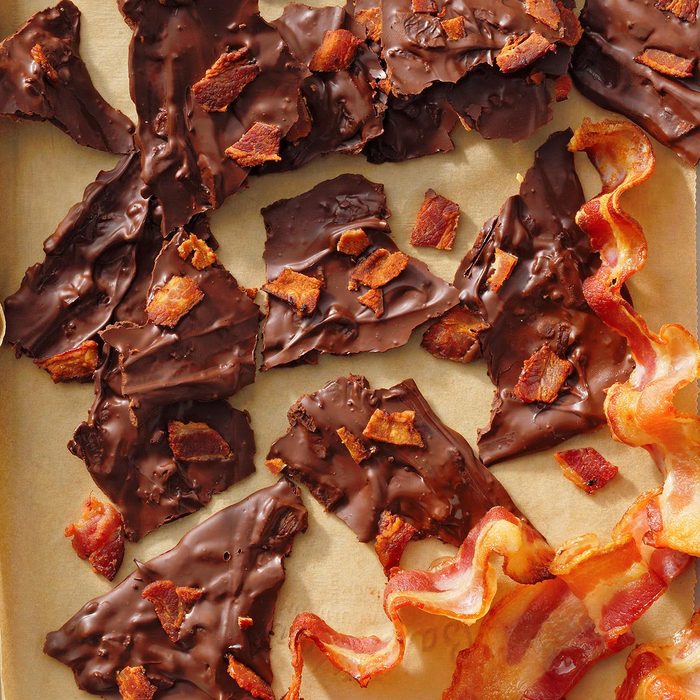
Only Using Bacon in Savory Dishes
When you think bacon, your mind probably jumps to breakfast, BLTs and other savory recipes. But you should think again! Bacon’s salty quality makes it a natural pairing with sweet ingredients (after all, who’s immune to salted caramel?). Rashers of bacon can be used to make bacon bark, Maple-Bacon Rice Krispie Treats and other bacon desserts.
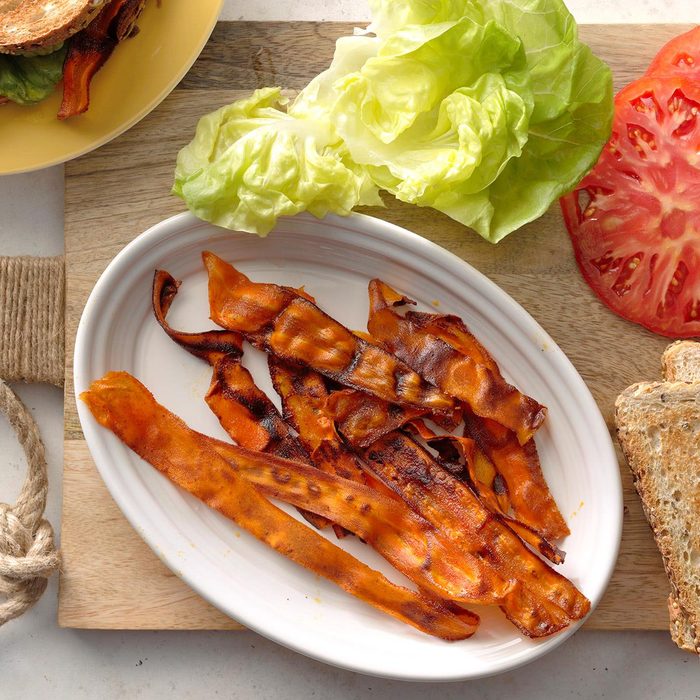
Using Only Regular Bacon
You may only know about the strips of bacon that come in packs at the store, but the world of bacon is vast! There are different types of bacon out there including Canadian bacon, lardons (these are essentially cubes of bacon) and even alternatives like turkey and vegan bacon. If you’re a fan of this protein, it’s worth experimenting with similar (but deliciously different) counterparts.
